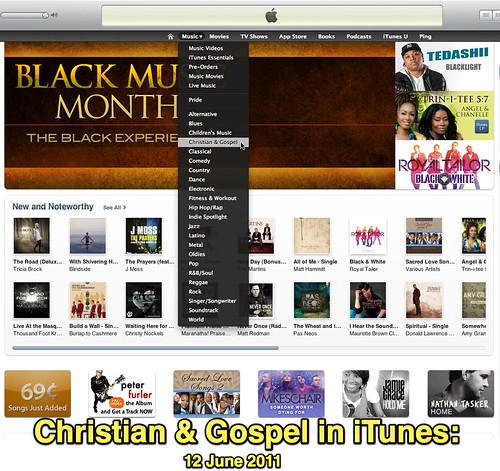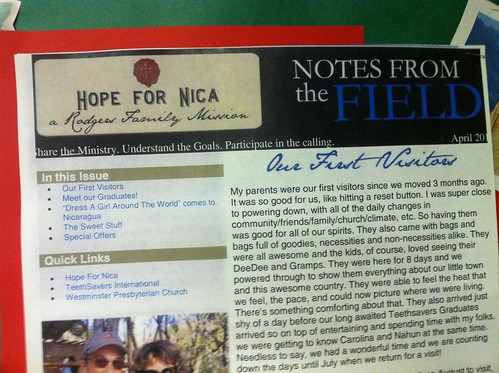Apple, iTunes and the Pro-Homosexual Agenda
I noticed this evening Apple has created a leading category under “Music” in the iTunes Store named “Pride.” This category includes music and movies by homosexual artists and/or about homosexual issues/themes.
Apple now wields considerable cultural influence as a corporation, especially through the artists and creative works it features in its iTunes Store.
One part of the postmodern philosophical, moral and theological agenda is to “normalize” homosexual behavior and homosexual lifestyles. Of course, homosexuals have been a part of human society since the dawn of time. Historically in Judeo/Christian cultures, however, homosexual behavior has been regarded as a sin. Some postmoderns seek to change public perceptions about homosexuality, regarding it as normal/acceptable rather than aberrant or “a sin.” Apparently Apple Inc. is on that postmodern bandwagon. This is a screenshot of the “LGBT Movie Collection” in iTunes, linked from the aforementioned “Pride” category.
Clearly Apple is in the business of making money first, as a corporation, and that could explain the existence of this category in iTunes. By creating this category, people interested in media within that category are going to likely purchase more of it as a result. The fact that Apple has put the category at the top of all other media categories under “music,” however, indicates prioritization which Apple employees managing the store are placing upon these particular media titles and the messages they include.
Seeing these media collections in iTunes this evening prompted a conversation about these issues with my ten year old. If your kids access and use iTunes, it’s good to be aware of this content and the way it’s featured in the store. Depending on the age of your kids, you might want to have some conversations about this too.
I won’t go into detail here about what Sarah and I discussed, but I will say we talked about how we are never called as humans to hate others. God exhorts us through his Word to hate sin, but not to hate people. Unfortunately we continue to see numerous examples in our communities of hateful discrimination and bigotry, based on a variety of different things. We live in a diverse society, and it is vital we learn to respect others who have different beliefs, worldviews and lifestyles from our own. It can be challenging to separate sin from people who sin, but we believe that is what we’re called to do by God. All behavior is not moral, but all people are deserving of love and respect. These are challenging but important ideas to discuss, especially with a ten year old about to go to middle school.
My post a month ago, which I also cross-posted on my main blog (“Putting the Passage of Amendment 10-A for Christians Worldwide in Statistical Perspective“) received many more comments than my “normal” posts. I carefully considered whether to even share these images and ideas on Eyes Right, but decided to since this is such an important topic to discuss and many people may not realize the role Apple Inc. is playing in our present “culture wars” via iTunes. Apple’s desire, through it’s cultural influence, to “normalize” homosexuality is clear.
It’s interesting to look at the featured images and albums in iTunes this evening in the “Christian & Gospel” category. Is “Black Music Month” necessarily connected to “Christian & Gospel” music? I’m not sure this makes sense.
The culture wars continue. Apple is not value-neutral in the media as well as artists they feature in iTunes. If you didn’t know, now you do.
Technorati Tags:
apple, itunes, lgbt, homosexual







